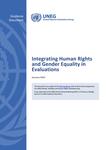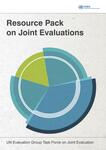Page Header

-
2020 Ethical Guidelines for Evaluation
1.67 MB English
-
2020 Ethical Guidelines for Evaluation Pledge
124.13 KB English
-
UNEG Ethical Guidelines French
1.77 MB English
-
UNEG Ethical Guidelines Spanish
1.77 MB English
-
UNEG Ethical Guidelines Arabic
1.57 MB English
Overview
The UNEG Ethical Guidelines for Evaluation were first published in 2008 and revised in 2020. The revised guidelines are consistent with the standards of conduct in the Charter of the United Nations, the Staff Regulations and Rules of the United Nations, the Standards of Conduct for the International Civil Service, and in the Regulations Governing the Status, Basic Rights and Duties of Officials other than Secretariat. They are also consistent with the United Nations’ core values of Integrity, Professionalism and Respect for Diversity, the humanitarian principles of Humanity, Neutrality, Impartiality and Independence and the values enshrined in the Universal Declaration of Human Rights.
This Guidance document aims to support UN entity leaders and governing bodies as well as those organizing and conducting evaluations for the UN to ensure that an ethical lens informs day to day evaluation practice. It provides:
- Four ethical principles for evaluation;
- Tailored guidelines for entity leaders and governing bodies, evaluation organizers, and evaluation practitioners;
- A detachable Pledge of Commitment to Ethical Conduct in Evaluation that all those involved in evaluations will be required to sign.
The guidelines are designed to be useful and applicable to all UN agencies, regardless of differences in mission (operational vs. normative agencies), in structures (centralized vs. decentralized), in the contexts for the work (development, peacekeeping, humanitarian) and in the nature of evaluations that are undertaken (oversight/accountability focused vs. learning).
The United Nations Department for General Assembly and Conference Management (DGACM) provided generous in-kind support to translate the 2020 UNEG Ethical Guidelines for Evaluation into Arabic, French and Spanish.










